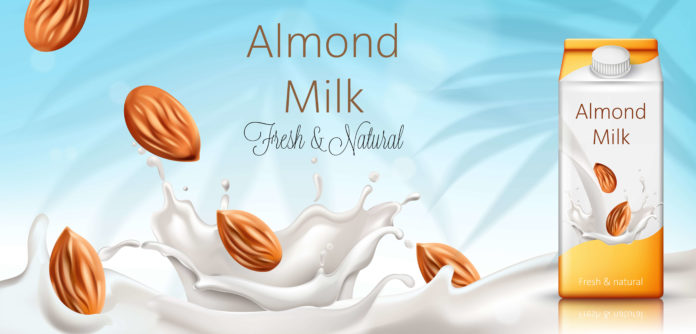In recent months, the global supply of almond milk has experienced a significant shortage, raising concerns among consumers and businesses alike. Almond milk, a popular alternative to dairy milk for its health benefits and environmental sustainability, has become a staple in many households and coffee shops around the world.
Nonetheless, the deficiency has been credited to different elements, remembering dry season conditions influencing almond creation for key districts, expanded interest for plant-based milk options, and strategic difficulties in the production network. As a result of the shortage, many retailers and food service providers are struggling to keep almond milk stocked on their shelves, leading to potential disruptions in the availability of this popular dairy alternative.
Additionally, the shortage has also impacted the prices of almond milk, with some outlets reporting significant increases in cost. This lack has provoked industry specialists and shoppers to consider the drawn out maintainability of almond milk creation and quest for elective answers to fulfill the developing need for plant-based milk.
What Is Almond Milk?
Almond milk is a plant-based milk substitute produced using ground almonds and water. It first became popular several years ago among those who were lactose intolerant or following vegan diets. Since then, it has exploded in popularity among mainstream consumers as well.
Almond milk has a creamy, nutty flavor and can be used as a substitute for cow’s milk in most recipes and beverages. It is lactose, soy and gluten free, making it a good option for many people with dietary restrictions. It also contains some beneficial nutrients like vitamin E, calcium, and protein. Over the past five years, almond milk sales have grown over 250% as it has become a staple in many households.
Is Almond Milk Shortage?
Yes, there is an almond milk shortage, and it’s not something we can brush off easily. This popular, tasty and nutritious dairy alternative has become a staple in many households.
The shortage is affecting not only the consumers but also the cafes and restaurants that use almond milk in their beverages and dishes. The situation is dire and demands the attention of all who rely on this versatile milk substitute.

Reasons For The Almond Milk Shortage
The reasons behind the almond milk shortage are multifaceted.
1. Increased Demand
More people are switching to plant-based diets for health, environmental, and ethical reasons. This has resulted in an increased demand for almond milk.
2. Environmental Factors
Almond farming is water-intensive, and with the ongoing drought in California, where most of the world’s almonds are grown, the production is facing a significant setback.
3. Supply Chain Disruptions
The COVID-19 pandemic has caused disruptions in the supply chain, affecting the production and distribution of various goods, including almond milk.
4. High Cost of Production
The cost of producing almond milk is high due to the cost of almonds themselves, which has been affected by the factors mentioned above.
Related Article:
What Are The Alternatives To Almond Milk
With almond milk hard to come by, customers are looking for plant-based milk alternatives.The following are two or three top choices to consider:
Soy milk has been around for decades and has a higher protein content than other plant milks. The flavor is relatively neutral. It works well for drinking, baking, and adding to cereals or smoothies. Organic options avoid GMOs. Those with nut allergies often rely on soy milk when almond milk is not available.
Rice milk gives an exceptionally gentle flavor and lighter consistency. It will not overwhelm espresso or tea. Individuals with nut sensitivities frequently use rice milk as well.Look for unsweetened or lightly sweetened varieties. Avoid added gums or oils. Rice milk tends to be lower in protein than other plant milks.
Coconut milk has a creamy texture and tropical flavor. Full-fat coconut milk functions admirably for cooking and baking. However, be careful with added sugars. Lower fat coconut milk is better for drinking.Shake cans well before pouring. Coconut milk has risen in popularity along with almond milk.
How Is Shortage Impacting Consumers?
While a widespread almond milk shortage isn’t currently causing major disruptions, localized shortfalls and price fluctuations can still impact customers. Depending on individual preferences and dietary restrictions, some might feel the pinch more than others.
Lactose intolerant or vegan consumers who rely heavily on almond milk could face inconvenience finding their preferred brand or type, potentially needing to experiment with alternatives that may not fully match their taste or nutritional needs. Additionally, if prices rise due to limited availability, budget-conscious customers might need to adjust their grocery spending or seek out more affordable options.
Overall, while not a nationwide crisis, an almond milk shortage can cause minor disruptions and require some adaptation for certain customers, particularly those with specific dietary needs or budgetary constraints.
Do Hash Brown Patties Come Back In The Future?
Whether almond milk specifically “comes back” in the future depends on how you define “come back.” It’s currently a popular plant-based beverage, but faces criticism for its environmental impact. Predictions suggest the plant-based milk market will keep growing, driven by sustainability concerns and dietary choices.
So, we might see almond milk continue, but potentially alongside innovative new options that address its drawbacks. Perhaps lab-grown, nut-based alternatives with lower water footprints will emerge. Ultimately, the future of almond milk hinges on addressing its current limitations while adapting to consumer preferences and environmental needs.
Conclusion
The almond milk shortage shocked numerous purchasers as the well known plant-based milk evaporated from supermarkets throughout recent months.Caused by surging demand, supply chain issues, almond crop problems, and labor shortages, the shortage has made almond milk difficult to find for regular drinkers.
While frustrating, experts say supply should stabilize over the next few months. In the meantime, consumers may need to pay more, switch brands, substitute other milks, or go without until the almond milk supply meets the unprecedented demand.
The almond milk craze doesn’t appear to be going away anytime soon, so producers will need to ramp up production and transportation to keep their milk alternatives flowing.
FAQs – Almond Milk Shortage
What Is Almond Milk?
Almond milk is a plant-based milk produced using almonds. It is a popular alternative to dairy milk for people who are lactose intolerant, vegan, or who are looking for a lower-calorie milk option. Almond milk is made by mixing almonds with water and afterward stressing the blend. It is typically fortified with calcium, vitamin D, and other nutrients.
What Are The Benefits Of Drinking Almond Milk?
Almond milk is a good source of vitamin E, which is an antioxidant that can help protect your cells from damage. It is additionally low in calories and fat, and it is liberated from cholesterol and lactose. Additionally, almond milk is a good source of calcium and vitamin D, which are important for bone health.
Is Almond Milk Good For Weight Loss?
Almond milk can be a helpful tool for weight loss because it is low in calories and fat. However, it is important to note that it is not a magic bullet. If you are trying to lose weight, you will need to create a calorie deficit by eating fewer calories than you burn.
What Is The Best Brand Of Almond Milk?
There is no one-size-fits-all answer to this question, as the best brand of almond milk for you will depend on your individual needs and preferences. Some factors to consider include the protein content, sugar content, and calcium content. You may also want to consider the price and taste of the milk.
Will The Shortage Of Almond Milk Continue Into The Future?
While it’s difficult to predict, continuous disruptions in the supply chain and almond production may lead to a prolonged shortage of almond milk.

